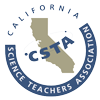Legislative Update – AB 1586

On May 1, 2019, the Assembly Education Committee heard AB 1586 (Kalra). The bill sought to ban all animal dissections in California, K-12, public and private classrooms and replace dissection with alternatives to dissection. The hearing lasted nearly an hour and consisted of a presentation by the bill’s author, witnesses in support and opposition, and a thoughtful discussion between the members of the committee. In the end, the bill did not secure a sufficient number of votes to pass out of the committee.
The bill was opposed by several organizations including CSTA, California Teachers Association (CTA), California Federation of Teachers (CFT), Association of California School Administrators (ACSA), National Association of Biology Teachers (NABT), California Agricultural Teachers Association, California Farm Bureau Federation, and several other organizations and individuals.
CSTA Upper Elementary Director Alyssa Nemeckova-Fairfield, a 4/5 teacher in the Palm Springs Unified School District was one of three witnesses to testify in opposition to the bill. She shared her experience in the classroom and how she has used dissection effectively to support the Next Generation Science Standards, including the Nature of Science.
Pia VanMeter, high school anatomy and physiology and marine biology teacher in the Riverside Unified School District and chair of CTA’s Curriculum and Instruction Committee, was the first to present in opposition. She shared CTA’s concerns about the bill, including how the bill would “eliminate educational professional’s expertise to use dissection as a meaningful learning experience.”
Cathy McBride presented on behalf of the Association of California School Administrators (ACSA), who expressed their concerns that the bill was counter to local control and that the ban takes away choices from teachers, schools, and districts to either use dissection, alternatives to dissection, or a combination of both. She expresses ACSA’s willingness to engage in conversation about the state’s current opt-out provision. (For details on current Education Code relating to a student’s right to opt-out and the responsibilities of the teacher, please review Education Codes 32255 – 32255.6.)
Witnesses in support of the bill included a physician, a retired California science teacher, and a representative of Social Compassion in Legislation (one of the bill’s sponsors). Statements in support of the bill promoted the effectiveness and compassionate approach, flexibility and affordability, and the level of quality of dissection alternatives available today. In addition, they expressed their concerns about exposure to formaldehyde, student discomfort in classrooms, and damage to ecosystems due to how some specimens may be sourced.
After hearing the witness’s testimony, the members of the Assembly Education Committee asked questions of the author and made comments. Questions and comments included concerns about costs, reducing options for teachers, designing lesson plans in the legislature, access and equity in science education for all students, and several others. An archived video of the hearing is available online. The section of the video pertaining to AB 1586 begins at 33:43 and concludes at 1:27:00.
The CSTA Board of Directors thanks the volunteer members of our Legislative Oversight Committee and individual board members who spent many hours in the effort to mount an effective opposition to the bill. CSTA thanks the many members who responded to our call to contact their legislator and spread the word in their professional networks. It was clear in the days leading up to the hearing on May 1, that your calls and engagement in this was being heard by members of the Assembly Education Committee. CSTA also extends sincere appreciation to the California Teachers Association, Association of California School Administrators, National Science Teachers Association, National Association of Biology Teachers, Hands-on Science Partnership, California Agricultural Teachers Association, and the California Farm Bureau for their support and collaboration over the past two months.
Stay tuned to CSTA for updates on other legislative bills that are still pending in the legislature and look for information about the Governor’s revised budget later this month. If you are not a member of CSTA currently, please do join today to support the only professional membership association in California whose mission is to promote high-quality science education.






